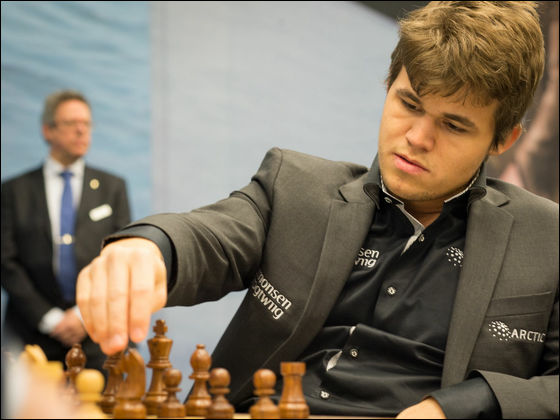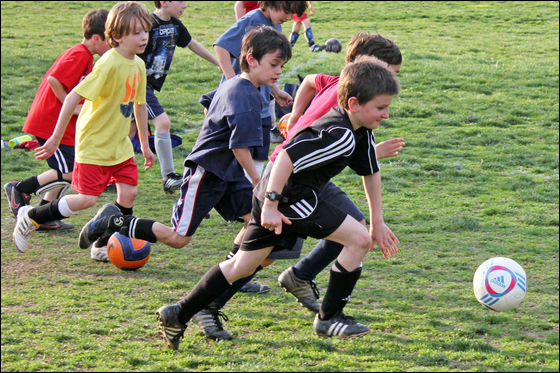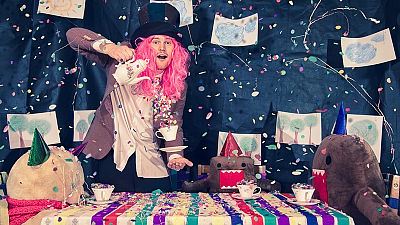Can I become a top class if the gene is superior without practicing 10,000 hours?

ByWoodleywonderworks
Based on the fact that those who are called "top notch" or "genius" in some sort of field are doing practice amount far exceeding ordinary people regardless of sense and talent, by 10,000 hours of diligent exercise The idea that anyone can acquire first-class skills is "Law of 10,000 hours"is. Slate reveals the relationship between this law and "gene", although it is a law that embodies the word "effort is always rewarded".
Malcolm Gladwell's 10,000 Hour Rule for deliberate practice is wrong: Genes for music, IQ, drawing ability, and other skills.
http://www.slate.com/articles/health_and_science/science/2014/09/malcolm_gladwell_s_10_000_hour_rule_for_deliberate_practice_is_wrong_genes.single.html

Ten years ago, Magnus Carlsen, then 13 years old, won the former world champion Anatoly Karpov with a chess tournament and arose a sensation in the chess world. Furthermore, the next day after defeating the former champion, I have also drawn with Mr. Garry Kasparov who was considered the best player of the chess of the earth at the time as the top player of the time.
Mr. Carlsen then wrote in 2004Grand MasterIn 2010, it became the youngest chess world ranking in history and ranked first in chess world rankings, and in 2012 it became the most valuable chess player in history. Is Mr. Karlsen's wonderful achievements brought about by 'long practice' or 'talent' that he had with nature?

ByIntel Free Press
What is necessary to be at the top of various fields such as "music" "game" "sports" "business" "science" What is it, what has been thought by many scientists and researchers since ancient times I have done it. And in 1993, a paper published by Swedish psychologist K. Anders Eriksson and colleagues reveals what is necessary to acquire first-class skills. According to this paper, in the fields such as music and chess, the difference in time "trained earnestly" greatly affects performance improvement.
To prove this assumption, Mr. Ericsson gathers the violinist's eggs who attend the Berlin Music School and asks each of them "How long have you been practicing the violin?" As a result of this survey, it is clear that a clear relationship exists between the violin skill and the time spent on practice so far.
For example, the cumulative practice time of violinists who are expected to be the future of the violin elite was more than 10,000 hours on average, but on average violinists rated as mediocre levels had an average of only 5000 hours of exercise He said he was not doing anything. Another study asked the pianist about the practice time so far, while an excellent pianist performs an average of more than 10,000 hours of practice, while the average practice time of an amateur pianist is only about 2000 hours It is also obvious.

ByDanny.
Based on these findings, Mr. Ericsson argued that the difference between a professional and an amateur is "not a natural talent" but a "serious practice to be continued". And this idea is for Mr. Malcolm GladwellbookIt becomes famous as "the rule of 10,000 hours".
In addition, Slate writers investigated 9000 related research and books, most studies showed that there is a clear relationship between many practice and skills, with few exceptions.
However, the correlation between "practice" and "skill" is not perfect. For example, according to a study by Dr. Brook McNamera of Dr. Princeton University, it has been found that serious exercise has only 12% average impact on the ability of people called first-class genius. Looking at the breakdown in detail, the contribution of the 10,000 hour rule is 26% for games like chess, 21% for music, 18% for sports, 4% for education, intellectual profession It is only 1% with regard to that. In other words, this means that it is not always possible to be an expert by keeping 10,000 hours truthful exercise.

ByWoodleywonderworks
It has also become clear that "genes" plays an important role in acquiring first-rate skills. A psychologist at King's College London psychologist Mr. Robert Plomin said that studies using twenty or more than twenty thousand pairs of British twins have shown that studies with identical twins over twin eggy twins It turns out that the ability to draw is similar. In other words, if one of the identical twins is good at drawing a picture, that sibling also is good at drawing a picture.
Considering that identical monosomes have the same 100% gene, and in the case of twin eggy twins, based on the fact that the proportion of this same gene drops to 50% on average, the difference in "ability on art" like the ability to draw pictures Suggests that there is a big difference depending on the genes, and another suggestion made in the UKthe studyHowever, there is a result that genetic differences are seen between experts and those with lack of skills.
Also, a team led by Mr. Miriam Mosing of the Karolinska Institute in Swedenthe studySo, we asked over twenty thousand pairs of twins to estimate the time you've been practicing music so far, and perform a simple test on music like "Determine if the two melodies are the same melody" It seems he got it. Surprisingly, it has been found that "the ability related to music is affected by 38% from genes, there is not any evidence that practice will be affected," and it has been found that I have practiced music more It is said that eggy twins often had bad grades in the music ability test rather than twins that did not practice much.

ByAbby Bischoff
Then, "Is not it necessary to practice especially if you want to become a musician?" That is not the case. Because, if you want to become a musician, you will certainly need skills to improve by practicing many "such as playing instruments".
American Declaration of Independence"As we say, as a self-evident truth, that everyone is created equally, the creator's right is given a certain unbearable genius right, including the pursuit of life, freedom and happiness in it Although it is marked as "believe", because human capabilities are not exactly equivalent in the first place, it is natural for genetic ability to differ depending on individual, race, gender. It has also been clarified that nearly half of human IQ is genetically dependent on decades of research in the past, but similarly there are genetically unsuitable orientations in various skills.
In the case of "It is not possible to become a pianist no matter how much you try hard" it is possible that it was probably not suitable for genetics at the part of artistic talent, but, for example, "skills necessary to become a doctor "There is nothing special, so if you say" you can not become a doctor "it may be just that school and home study is less than others.
Related Posts:
in Science, Posted by logu_ii







